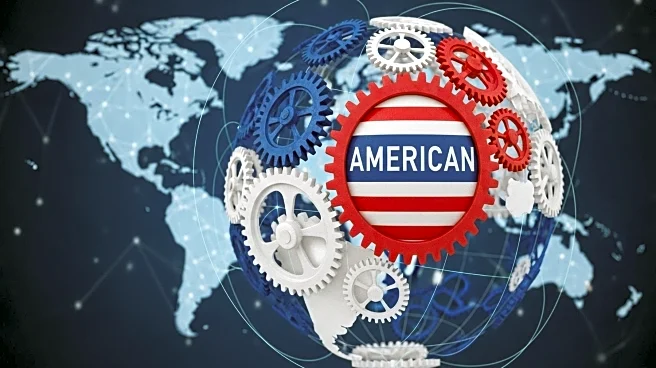What's Happening?
Recent projections from The Lancet indicate a significant increase in global health challenges due to the political uncertainty surrounding PEPFAR, the President’s Emergency Plan for AIDS Relief. The report suggests that the world could face between 4.43 to 10.75 million additional HIV infections and up to 2.93 million HIV-related deaths by 2030. Broader cuts to USAID could result in 14 million deaths globally, including 500,000 children dying from AIDS and 2.8 million experiencing orphanhood. This situation presents a strategic opportunity for American corporations to step in and address global health needs, potentially transforming humanitarian efforts into market creation opportunities.
Why It's Important?
The retreat of the U.S. from global health leadership opens a strategic gap that American corporations can fill, offering consistency and long-term thinking that government programs often lack due to political cycles. By investing in global health, companies can cultivate emerging markets, particularly in regions like sub-Saharan Africa, where a large youth population represents a significant consumer base. Corporate health initiatives not only save lives but also foster brand loyalty and create economic opportunities. This approach positions American companies to capture market loyalty before competitors, such as Chinese state enterprises, fill the void left by U.S. political dysfunction.
What's Next?
American corporations are encouraged to scale existing models of corporate health diplomacy, such as Coca-Cola’s Project Last Mile, which uses corporate supply chains to deliver medicines across Africa. Pharmaceutical companies like Pfizer, Merck, and Abbott are urged to form partnerships that could create a 'Corporate PEPFAR,' maintaining healthcare gains and building consumer trust. Johnson & Johnson’s strategy to increase community health workers in Africa exemplifies how companies can grow local professional classes while delivering solutions. This strategic shift could redefine how America is perceived globally, emphasizing innovation and reliability over political instability.
Beyond the Headlines
The shift towards corporate health diplomacy could redefine traditional American soft power, offering a path that aligns humanitarian goals with business interests. Companies that embrace this opportunity may not only save lives but also secure their market positions for generations. This approach challenges corporate leaders to consider global health as a strategic business opportunity rather than a charitable responsibility, potentially reshaping global economic landscapes.











